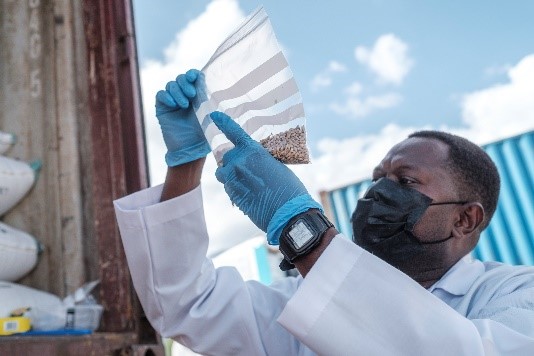Empowering our plant protection heroes

When we protect plants,
we protect lives.
#PlantHealthDay
With climate change and other global challenges compounding the pest problem and impacting plant health, the FAO e-Learning Academy, the International Plant Protection Convention (IPPC) Secretariat, and partners have developed several e-learning courses for professionals and novices in the phytosanitary field and any plant health enthusiast seeking to deepen their knowledge in plant protection.
The courses, now available in the IPPC Plant Health Campus, are free, multilingual, offer flexible learning options, and cover topics such as surveillance and pest status determination, pest risk analysis, and national reporting obligations. The courses also offer a digital badge that you can display on your LinkedIn profile or professional resume.
Fun fact:
By January 2025, over 6 000 learners had taken the IPPC e-learning courses on plant health and plant protection, now available on the new IPPC Plant Health Campus, hosted by the FAO e-Learning Academy.
From training and developing technical resources and manuals to providing equipment and knowledge-sharing opportunities, strong phytosanitary capacity is key to safeguarding plants and plant products from pests—and protecting economies, food security, and international trade.
How can I help?
Visit the IPPC Plant Health Campus to learn more and take some of the e-learning courses. Look out for more courses being developed in 2025 in more languages.
Resources:
Why does protecting plants and crops matter?
Plant pests destroy up to 40 percent of global crops annually. Protecting plants can help:
- Achieve a zero-hunger world
- Reduce poverty and inequality
- Protect biodiversity
- Support livelihoods of rural farmers
- Sustain economies around the world

